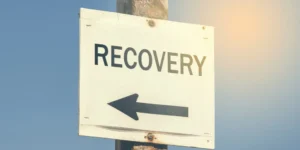From Neglect To Innovation, Revolutionizing Addiction Recovery
How have innovative drug addiction treatment methods evolved since the 1950s, and what impact do they have on recovery outcomes for individuals facing addiction today? Get help from qualified counsellors.
- Endorsed by Medical Aids
- Full spectrum of treatment
- Integrated, dual-diagnosis treatment programs
For most of modern history society did not treat addiction, it contained it. People were sent to psychiatric wards, sedated, detoxed, and then discharged back into the same streets, the same stress, and the same social circles that fed the problem. When relapse happened it was treated as proof that the person was hopeless, rather than proof that a short detox without structured follow up is not treatment. That old attitude still leaks into how families and employers speak today, as if a person can be cleaned up for a week and then expected to behave like nothing happened.
This is why so many people still confuse detox with recovery. Detox can be necessary and sometimes lifesaving, but detox on its own is like pulling a car out of a ditch and leaving it on the side of the road with a broken engine. The person has removed the substance from their body, but the compulsion and obsession that drove the use has not been rebuilt into something stable, and the life that supported the addiction has not been changed. Then everyone acts shocked when the person returns to drugs, and the blame lands on character instead of on the gap between what we did and what the illness requires.
The Damage Is Multi Layered
Addiction rarely damages only one area of life, it spreads into everything it touches. Physical health declines, sleep breaks down, appetite changes, and the person becomes less able to regulate stress. Mental health gets dragged into anxiety, depression, paranoia, shame, and emotional volatility. Social bonds collapse as the person either isolates or forms relationships built around supply and secrecy. Work and financial stability often erode, because performance drops, decisions become impulsive, and money disappears into the substance or into the chaos it creates.
This is why a small intervention rarely fixes a big problem. One counselling session a week can be valuable, but it cannot rebuild a life that has been rearranged by compulsive use if the person is still swimming in triggers and access. A proper treatment plan acknowledges that addiction is not only in the bloodstream, it is in routines, relationships, coping strategies, and identity, and those pieces must be rebuilt in a structured way. Otherwise the person is expected to rely on raw willpower, and willpower is not a stable foundation when stress, cravings, and old networks are still waiting at the door.
The Core Building Blocks Of Real Treatment
Effective treatment usually begins with a proper assessment, because people arrive with different substances, different severity, different risks, and often different mental health conditions that complicate the picture. Medical stabilisation can matter, particularly when withdrawal is risky or when the person has been mixing substances, because stopping suddenly can cause serious complications in certain cases. Detox is about safety and stabilisation, not about personal growth, and it should be treated as the first step, not as the finish line.
Once the body is stabilised the deeper work begins. Therapy focuses on thinking patterns, emotional regulation, triggers, and the reasons a person keeps returning to the substance when life hurts. Group work matters because secrecy is oxygen for addiction, and hearing the truth in a room where people do not play games can break denial faster than any family lecture. Accountability matters because addiction thrives in loopholes, and treatment needs clear expectations, attendance, honesty, routine, and consequences that are not negotiable. Family involvement matters because the home environment can either support change or quietly sabotage it through enabling, resentment, or chaos, and good programmes address the system, not only the individual.
The Honest Version
Inpatient treatment makes sense when the addiction is severe, when the home is unstable, when the person cannot stay abstinent in their own environment, or when safety is a concern. A residential setting removes access, reduces daily triggers, and provides structure and supervision that many people need in the early phase. It also allows the person to practise new habits without constant exposure to old routines, which is critical when the brain is still craving relief.
Outpatient treatment can work well for higher functioning people who have structure at home, supportive family dynamics, and the ability to resist temptation while still living in the same world where they used. The problem is that people often choose outpatient for image, cost, or convenience, rather than because it fits clinically. They want to look normal, return to work quickly, and avoid the stigma of a residential stay, but the addiction does not care about optics. The right choice is the one that matches severity, access, and relapse risk, not the one that protects pride.
The Middle Ground That Saves People
The most dangerous period for many people is not the first week in treatment, it is the first weeks after leaving treatment. The person returns home and every cue is waiting, the same friends, the same stress, the same routes, the same secret habits, and often the same unresolved tension in the family. This is where step down care becomes vital. It provides a middle ground between full residential treatment and full independence, using halfway houses or structured living environments where accountability continues while the person reintegrates into work, family, and normal responsibilities.
Step down care is not a luxury add on, it is often the bridge that prevents a fall. It gives the person time to practise boundaries, build sober networks, and learn how to handle real life discomfort without reaching for a chemical shortcut. It also reduces the shock of re entry, because going from full structure to full freedom overnight is a big leap, and addiction loves big leaps because big leaps create stress, and stress creates excuses.
Maintenance Treatment
Medication assisted treatment is one of the most misunderstood parts of addiction care, especially for opioid dependence. People hear words like methadone and immediately say it is swapping one drug for another, and they use that argument to dismiss an approach that has helped many people stabilise and reduce harm. The purpose is not to create a new high, the purpose is to reduce cravings and withdrawal so the person can function, engage in therapy, stop chasing dangerous supply, and begin rebuilding their life without constant physiological crisis.
Maintenance can also refer to ongoing care that is not medication based. Aftercare, regular counselling, relapse prevention groups, and structured support like NA or AA can be maintenance in the healthiest sense of the word. The truth families need to accept is that addiction is chronic, and chronic conditions require ongoing management, not a one time rescue. People relapse more often when they treat aftercare as optional, because the moment routine collapses and stress rises, the old pathways light up again.
One Size Fails Loudly
There is no single programme that is best for everyone because people arrive with different histories and different risks. The substance matters, the pattern of use matters, mental health matters, trauma history matters, and the home environment matters. A person with severe dependence and a chaotic household needs a different plan to someone who is early in abuse and still has stable support at home. A person with dual diagnosis needs integrated care, because treating the substance without treating the anxiety, depression, or underlying instability often leads to a predictable return to self medication.
This is why shopping for the cheapest or quickest option often ends badly. A programme is not effective because it sounds nice, it is effective because it matches the reality of the illness and the reality of the person’s life. The perfect programme is the one the person can stay engaged in long enough to change, and engagement is not only their responsibility, it is also about the quality of the plan, the fit, and the support that continues after discharge.

Johannesburg is in the province of Gauteng in the Highveld region of South Africa, a…

Nobody wakes up addicted overnight People love the idea that addiction is a sudden event,…

The Truth Behind “Luxury Rehab” in South Africa South Africa has quietly become one of…









